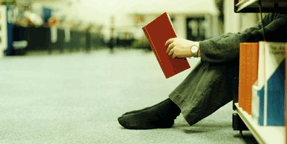 |
By Carina Zaragoza
The Green Bag, the self-described "entertaining journal of law," has announced it will join in on the rankings of law schools by examining the claims made by law schools about their faculty and comparing them to the actual performance of faculty members.
The methods The Green Bag staff will undertake are as follows:
- Gather each law school's faculty webpages, course catalogs, and publications.
- Analyze the data with close attention paid to recent scholarship and teaching.
- Rank the faculty according to a combination of teaching, research, publications, and service.
The preliminary findings will be sent to each law school's dean, giving her or him a chance to review the results and make any corrections. The final report will be published in the journal.
The Green Bag essentially wants to determine, and make public, whether faculty are doing what their respective law schools profess they do. Are faculty members teaching courses regularly? Are faculty members publishing scholarly works? Are faculty members engaging in community service or performing pro bono work?
The goal of the report, suggestively named "The Deadwood Report," is to determine whether "faculty members do the work the law schools say they do." The journal is referring to the practices of law schools around the country in trying to boost their admissions. To this endeavor, law schools, via their websites and marketing materials, oftentimes boast about their faculty members, their tremendous amount of research and publications, and their stellar records of public service. In light of this, The Green Bag asks how applicants are supposed to know whether faculty and their respective institutions are living up to the hype.
Traditional ranking organizations, such as the Association of American Law Schools and the American Bar Association, The Green Bag suggests, may be biased as both organizations have law schools as members. U.S. News & World Report, as a publication outside the legal field, also annually ranks law schools but does not assess the achievements of faculty.
The Green Bag hopes to fill this gap with "The Deadwood Report" and provide applicants with more detailed information about the faculty at each law school. The Green Bag is committed to transparency and will reveal its methodology, where data was collected, and how rankings were finalized. A second motive is compelling law schools to adopt a similar level of transparency.
There have been mixed reactions to the announcement of the upcoming report, from both rankers and the would-be ranked. Some profess that there already exist too many rankings. Others applaud The Green Bag's scrutiny of faculty members and claims made by law schools. Reaction from law school deans has likewise been mixed. Some welcome the additional factual information that will be made public. Others fear the report will be riddled with personal opinion and thus its credibility will be muddled.
As for the title of the report, The Green Bag editor Ross E. Davies is adamant that it is not intended to be mean. However, he does admit that "when you say 'deadwood,' people know what you mean."
The Green Bag was originally published from 1889 to 1914. The current version of the journal is run by Ross E. Davies, associate professor of law at George Mason University School of Law.
On the Net
Inside Higher Ed
The Green Bag
George Mason University School of Law
|
|
 |













 Almost any law school graduate can consolidate with Law School Loans and get lower interest rates and better terms.
Almost any law school graduate can consolidate with Law School Loans and get lower interest rates and better terms.
